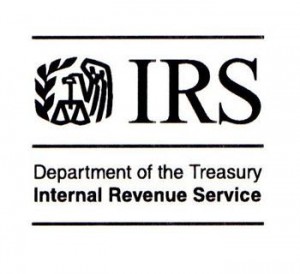 In a case that has obvious implications for employee benefit plans, the Veterans’ Administration (“VA”) has just provided survivor benefits to the partner of a service member, even though the partners were not married before the service member’s death.
In a case that has obvious implications for employee benefit plans, the Veterans’ Administration (“VA”) has just provided survivor benefits to the partner of a service member, even though the partners were not married before the service member’s death.
Category Archives: Governmental Plans
Domestic Partnership Converted Retroactively to Marriage After Death Provides Basis for Spousal Benefits
IRS determination letters after 2016; what are the options?
(Posted on July 28, 2015 by Carol V. Calhoun)
 As previously discussed, faced with substantial budget cuts, the Internal Revenue Service (“IRS”) has announced that it is eliminating most determination letters (letters concerning the qualified status of retirement plans, which gives rise to numerous tax benefits), effective December 31, 2016. (Announcement 2015-19.) In the past, individually designed retirement plans were able to obtain a determination letter once every five years, during a cycle provided by the IRS. The most likely new regime will involve making determination letters on individually designed plans available only when a plan is first adopted, or when it is terminated. Between those dates, the only way to ensure qualification other than filing a declaratory judgment action with the Tax Court is likely to be to adopt annual updates put out by the IRS that will include model wording for amendments.
As previously discussed, faced with substantial budget cuts, the Internal Revenue Service (“IRS”) has announced that it is eliminating most determination letters (letters concerning the qualified status of retirement plans, which gives rise to numerous tax benefits), effective December 31, 2016. (Announcement 2015-19.) In the past, individually designed retirement plans were able to obtain a determination letter once every five years, during a cycle provided by the IRS. The most likely new regime will involve making determination letters on individually designed plans available only when a plan is first adopted, or when it is terminated. Between those dates, the only way to ensure qualification other than filing a declaratory judgment action with the Tax Court is likely to be to adopt annual updates put out by the IRS that will include model wording for amendments.
For entities that maintain a retirement plan, the new regime may mean that they discover qualification issues only on audit, when it is too late to fix the issue. And the potential penalties on audit (for the employer, the trust under the plan, and the employees) are, as set forth in a prior article, huge. What steps should a plan administrator take to ensure the qualification of a plan after that point? Read more.
Governmental Plan Determination Letters: Last Chance?
(Posted on July 21, 2015 by Carol V. Calhoun)
 On July 21, 2015, the Internal Revenue Service (“IRS”) issued Announcement 2015-19, in which it announced that it would be making substantial changes to the determination letter program intended to allow retirement plan sponsors to ensure that their plans are qualified (eligible for tax benefits). This announcement will affect all retirement plans intended to be qualified, but will create particular issues for plans maintained by governmental employers (“governmental plans”). Read more.
On July 21, 2015, the Internal Revenue Service (“IRS”) issued Announcement 2015-19, in which it announced that it would be making substantial changes to the determination letter program intended to allow retirement plan sponsors to ensure that their plans are qualified (eligible for tax benefits). This announcement will affect all retirement plans intended to be qualified, but will create particular issues for plans maintained by governmental employers (“governmental plans”). Read more.
Employee benefits effects of Supreme Court same-sex marriage decision
(Posted on July 14, 2015 by Carol V. Calhoun)
 On June 26, 2015, the Supreme Court struck down all state bans on same-sex marriage in Obergefell v. Hodges. For employers, this decision raises the issue of what changes must be made in employee benefits to reflect the decision.
On June 26, 2015, the Supreme Court struck down all state bans on same-sex marriage in Obergefell v. Hodges. For employers, this decision raises the issue of what changes must be made in employee benefits to reflect the decision.
For this purpose, we will look at three categories of employers: those that have already been offering benefits to same-sex spouses, those that have not previously offered benefits to same-sex spouses, and those that have been offering benefits to domestic partners.
Can a state retirement system deny benefits to felons? It’s complicated.
(Posted on May 12, 2015 by Carol V. Calhoun)
 Many state laws provide that an individual who commits a felony related to his or her official duties will forfeit benefits under the state retirement system. It is clear that such provisions in a pension plan are permissible if they were included in a pension plan on its adoption, or if they apply only to employees hired after the provision was adopted. However, two states (New York and California) have recently struggled with the issue of whether such a provision can be effective with respect to employees hired before the adoption of the provision. Read more.
Many state laws provide that an individual who commits a felony related to his or her official duties will forfeit benefits under the state retirement system. It is clear that such provisions in a pension plan are permissible if they were included in a pension plan on its adoption, or if they apply only to employees hired after the provision was adopted. However, two states (New York and California) have recently struggled with the issue of whether such a provision can be effective with respect to employees hired before the adoption of the provision. Read more.
IRS Clarifies That Plans Do Not Necessarily Have to Recoup Overpayments
(Posted on April 26, 2015 by Carol V. Calhoun)
 What should a retirement plan sponsor do if it discovers that it has overpaid benefits to a retiree or other former employee? The question has recently arisen in the case of the pension plan of Pontiac, Michigan, which accidentally overpaid many of its retirees an average of $1,000 over a 16-month period. Read more.
What should a retirement plan sponsor do if it discovers that it has overpaid benefits to a retiree or other former employee? The question has recently arisen in the case of the pension plan of Pontiac, Michigan, which accidentally overpaid many of its retirees an average of $1,000 over a 16-month period. Read more.
Defined Benefit Versus Defined Contribution: Lessons from Utah
(Posted on April 26, 2015 by Carol V. Calhoun)
 The Pension Research Council of The Wharton School of the University of Pennsylvania has done a study on the effects of Utah’s change in its pension system. Before the change, employees participated in a defined benefit plan. Employees hired after the change were given a choice between a hybrid (defined benefit/defined contribution) plan or a straight defined contribution plan. Those who failed to make a choice were automatically assigned to the hybrid plan. In general, either of the new plans was less generous than the old defined benefit plan.
The Pension Research Council of The Wharton School of the University of Pennsylvania has done a study on the effects of Utah’s change in its pension system. Before the change, employees participated in a defined benefit plan. Employees hired after the change were given a choice between a hybrid (defined benefit/defined contribution) plan or a straight defined contribution plan. Those who failed to make a choice were automatically assigned to the hybrid plan. In general, either of the new plans was less generous than the old defined benefit plan.
In general, the Pension Research Council found that employees hired after the change had greater turnover than those hired before the change. Moreover, those electing into the hybrid plan were more likely to stay with the employer than those electing into the defined contribution plan. Those who defaulted into the hybrid plan had the highest turnover.
The Pension Research Council concluded that while the change may have saved the state money in pension costs, “public pension reformers must consider employee responses, in addition to potential cost savings, when developing and enacting major pension plan changes.”
Family & Medical Leave Act regulations protect same-sex spouses, regardless of domicile
(Posted on February 23, 2015 by Carol V. Calhoun)
 Immediately after the Supreme Court’s decision in United States v. Windsor, the Department of Labor announced that for purposes of the spousal protections of the Family and Medical Leave Act of 1993 (FMLA), it would recognize a same-sex marriage only if it was legal in the jurisdiction of the couple’s domicile. It has now reversed that position, issuing final regulations which recognize a marriage a) within the United States, if it was valid in the state in which it took place, and b) outside of the United States, if it was valid in the jurisdiction in which it took place and if it could have been entered into in at least one state. The effective date for the final rule was March 27, 2015.
Immediately after the Supreme Court’s decision in United States v. Windsor, the Department of Labor announced that for purposes of the spousal protections of the Family and Medical Leave Act of 1993 (FMLA), it would recognize a same-sex marriage only if it was legal in the jurisdiction of the couple’s domicile. It has now reversed that position, issuing final regulations which recognize a marriage a) within the United States, if it was valid in the state in which it took place, and b) outside of the United States, if it was valid in the jurisdiction in which it took place and if it could have been entered into in at least one state. The effective date for the final rule was March 27, 2015.
Update (June 26, 2015): This rule is in line with the Supreme Court decision in Obergefell v. Hodges, which has now recognized same-sex marriages nationwide.
Employee Benefits Effects of Treasury, IRS and Department of Labor Announcements That All Legal Same-Sex Marriages Will Be Recognized For Federal Tax Purposes
(Posted on February 23, 2015 by Carol V. Calhoun)
 This post was updated on June 26, 2015 to reflect the Supreme Court’s decision in Obergefell v. Hodges, which struck down all state bans on same-sex marriage.
This post was updated on June 26, 2015 to reflect the Supreme Court’s decision in Obergefell v. Hodges, which struck down all state bans on same-sex marriage.
The Treasury Department and the IRS announced on August 29, 2013 that all legal same-sex marriages will be recognized for federal tax purposes. On September 18, 2013, the Department of Labor took the same position for purposes of the Employee Retirement Income Security Act of 1974 (“ERISA“). The announcements and corresponding revenue ruling
Because employee benefit plans are extensively regulated by federal law, this announcement means that all employers will be required to recognize such marriages for many employee benefits purposes. Conversely, employers in states that treat civil unions or domestic partnerships as if they were marriages will nevertheless be forbidden from treating such arrangements as marriages for certain employee benefits purposes. However, the precise impact will depend on whether the plan is subject to ERISA or whether it is a governmental or church plan exempt from ERISA. The chart below sets forth areas in which the announcement will affect the operation of different types of plans.
IRS opens determination letter process for governmental plans
(Posted on February 1, 2015 by Carol V. Calhoun)
 In recent years, the Internal Revenue Service (“IRS”) has been allowing plan sponsors to request determination letters on the qualified status of their retirement plans only during certain periods (cycles). For individually designed governmental plans, such a cycle (Cycle E) opened on February 1, 2015, and will remain open until January 31, 2016. Read more
In recent years, the Internal Revenue Service (“IRS”) has been allowing plan sponsors to request determination letters on the qualified status of their retirement plans only during certain periods (cycles). For individually designed governmental plans, such a cycle (Cycle E) opened on February 1, 2015, and will remain open until January 31, 2016. Read more
